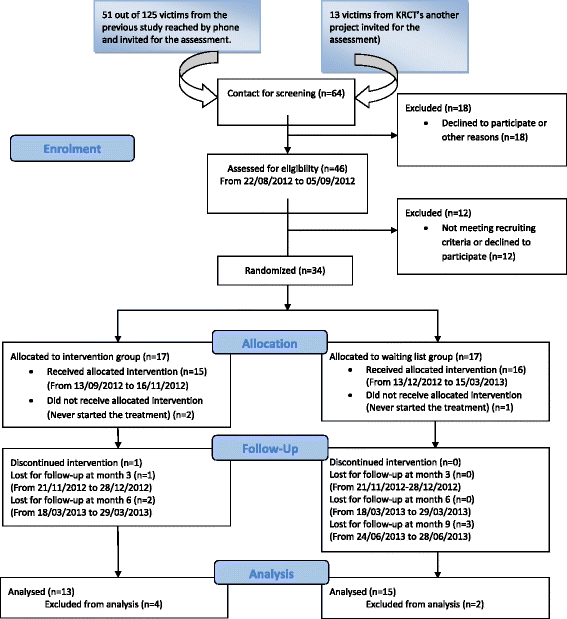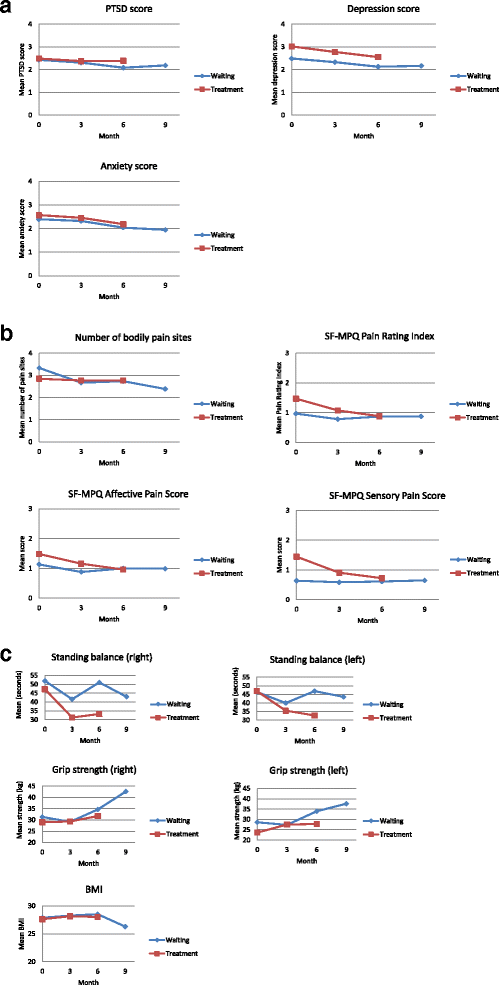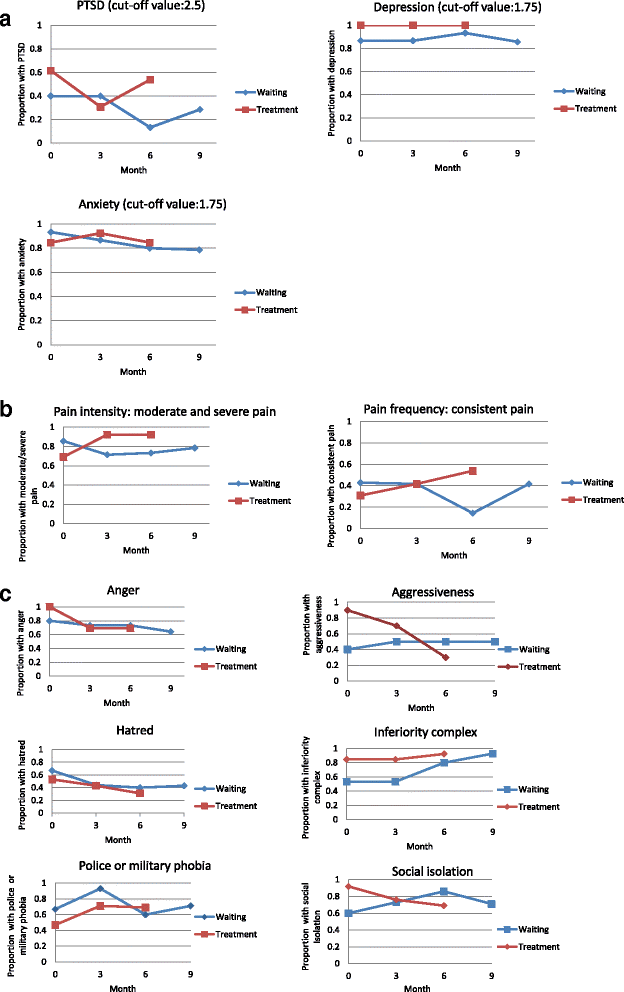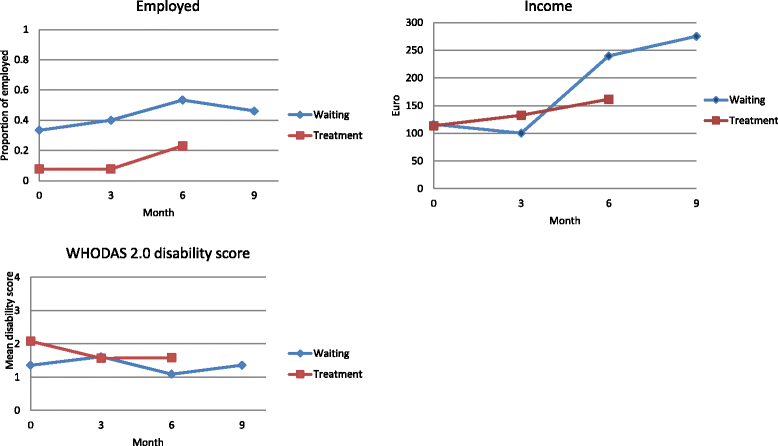A novel bio-psycho-social approach for rehabilitation of traumatized victims of torture and war in the post-conflict context: a pilot randomized controlled trial in Kosovo
- PMID: 28191034
- PMCID: PMC5297130
- DOI: 10.1186/s13031-016-0100-y
A novel bio-psycho-social approach for rehabilitation of traumatized victims of torture and war in the post-conflict context: a pilot randomized controlled trial in Kosovo
Abstract
Background: Some evidence showed that multidisciplinary rehabilitation in Western countries is effective for treating war-related trauma, but it remains unclear whether this approach is applicable to civilians living in resource-poor countries affected by war. In 2012-14, Danish Institute against Torture (DIGNITY) conducted a randomized controlled trial (RCT), in partnership with Kosova Rehabilitation Centre for Torture Victims (KRCT), to examine the effects of multidisciplinary intervention among victims of torture and war in Kosovo.
Methods: A single-center, randomized, parallel-arm, single-masked, waiting-list controlled trial was implemented in northern Kosovo. Thirty-four participants meeting the recruiting criteria were randomized to either intervention group, which received integrated treatments plus a once-daily multivitamin, or the waiting list group, which received multivitamin alone. The integrated treatments consisted of 10 weekly individual 60-min sessions of cognitive behavioral therapy (CBT), based on an adapted prolonged exposure therapy manual, an individual 20-min breathing exercise with an emWave biofeedback device, and 90-min group physiotherapy. The waiting list group also received the same treatment after the intervention group had completed their sessions. Outcome assessments were conducted at 3, 6 and 9 months after baseline assessment. Outcomes measures consisted of 4 subtypes: mental, emotional, physical health, functioning and social outcomes, i.e. PTSD, depression, anxiety, chronic pain, anger and hatred expression, body mass index, handgrip strength, standing balance, income, employment rate and disability score.
Results: Over 1/3 of PTSD cases were successfully treated. Inconsistent patterns with mental health and chronic pain outcomes were observed while there was a definite impact of intervention on functioning and social outcomes, i.e. the employment rate, which increased nearly 15 %, and the monthly wage, which rose 45-137 %. There was also a noticeable improvement in handgrip strength and disability score; the feelings of anger and hatred diminished. However, most of these changes did not reach statistical significance.
Conclusions: The impact of bio-psycho-social intervention is likely sensitive to the context of post-war economy in Kosovo and the treatment goals. The potential for improving the emotional well-being and employment outcome in victims was demonstrated. A larger scale RCT in a similar setting is needed, with close monitoring of treatment integrity and data reliability.
Trial registration: Clinicaltrials.gov (NCT01696578).
Figures




References
-
- Wang SJ, Rushiti F, Sejdiu X, Pacolli S, Gashi B, Salihu F, Modvig J. Survivors of war in northern Kosovo (III): The role of anger and hatred in pain and PTSD and their interactive effects on career outcome, quality of sleep and suicide ideation. Confl Heal. 2012;6(1):4. doi: 10.1186/1752-1505-6-4. - DOI - PMC - PubMed
-
- Kashdan TB, Morina N, Priebe S. Post-traumatic stress disorder, social anxiety disorder, and depression in survivors of the Kosovo War: experiential avoidance as a contributor to distress and quality of life. J Anxiety Disord. 2009;23(2):185–196. doi: 10.1016/j.janxdis.2008.06.006. - DOI - PMC - PubMed
-
- Wenzel T, Rushiti F, Aghani F, Diaconu G, Maxhuni B, Zitterl W. Suicidal ideation, post-traumatic stress and suicide statistics in Kosovo. An analysis five years after the war. Suicidal ideation in Kosovo. Torture. 2009;19(3):238–247. - PubMed
Associated data
LinkOut - more resources
Full Text Sources
Other Literature Sources
Medical

